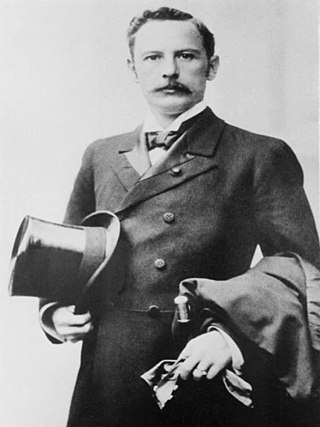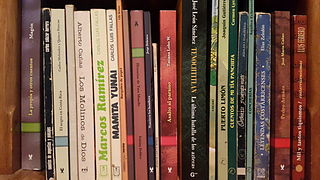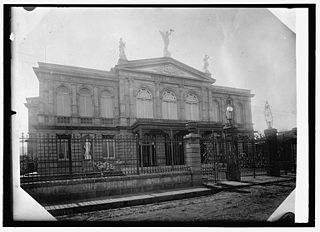W
| | This section is empty. You can help by adding to it. (March 2022) |
This article lists people who have been featured on the postage stamps of Costa Rica. Note that many of these people have been featured on multiple stamps. The following entries list the name of the person, a short description of their notability, and the first year they were first featured on a stamp.
The list is complete through 2022.
| | This section is empty. You can help by adding to it. (March 2022) |
| | This section is empty. You can help by adding to it. (March 2022) |

The "Himno Nacional de Costa Rica", also known by its incipit, "Noble patria, tu hermosa bandera", is the national anthem of Costa Rica. Its music was composed by Manuel María Gutiérrez Flores, who dedicated the score to French adventurer Gabriel-Pierre Lafond de Lurcy, and adopted in 1852. The music was created to receive delegates from the United Kingdom and the United States that year for the Webster-Crampton Treaty. It was the first Central American national anthem.

Rafael Anselmo José Yglesias Castro was a Costa Rican politician who served as President of Costa Rica for two consecutive periods from 1894 to 1902.
Fernández is a Spanish patronymic surname meaning "son of Fernando". The Germanic name Ferdinand that it derives from means "brave traveler." The Portuguese version of this surname is Fernandes. The Arabized version is Ibn Faranda and it was used by the Mozarabs and Muwallads in Al-Andalus. Fernández was on the list of Officers and Sailors in the First Voyage of Columbus. The name is popular in Spanish speaking countries and former colonies. The Anglicization of this surname is Fernandez.
The Academia Costarricense de la Lengua is an association of academics and experts on the use of the Spanish language in Costa Rica. It was founded in San José on October 12, 1923. It is a member of the Association of Spanish Language Academies.

The following is an alphabetical list of topics related to the Republic of Costa Rica.

Costa Rican literature has roots in colonization and is marked by European influences. Because Costa Rica is a young country, its literary tradition is also young. The history of Costa Rican literature dates to the end of the 19th century.
Zeledón or Zeledon may refer to:
Costa Rica became a member of the United Nations on November 2, 1945.

This is a list of foreign ministers of Costa Rica.

The First Costa Rican Republic is the name given to the historical period between the proclamation of the Republic of Costa Rica in the 1848 reformed Constitution and the official decree by then President José María Castro Madriz on 31 August 1848 and the Costa Rican Civil War of 1948 which ended with the enactment of the current 1949 Constitution on 7 November 1949 starting the Second Costa Rican Republic.

Liberalism in Costa Rica is a political philosophy with a long and complex history. Liberals were the hegemonic political group for most of Costa Rica's history especially during the periods of the Free State and the First Republic, however, as the liberal model exhausted itself and new more left-wing reformist movements clashed during the Costa Rican Civil War liberalism was relegated to a secondary role after the Second Costa Rican Republic with the development of Costa Rica's Welfare State and its two-party system controlled by social-democratic and Christian democratic parties.

The Olympus Generation, also called the 900 Generation, is the name given in Costa Rica to a group of intellectuals, teachers, historians, politicians and writers of liberal and positivist thought, whose ideas and philosophical, political, academic and cultural contributions were reflected in the sciences, arts, literature and politics between 1890 and 1920, this was the historical stage of Costa Rica where the liberal state is consolidated. Traditionally, they're known as the Olympus generation in reference to the Olympian gods of classical mythology, because most of them belonged to an oligarchic elite with political and economic power obtained from the international coffee trade during the second half of the 19th century. This was the nickname given by their detractors due to the arrogance of many of its members. The Olimpo generation played a leading role in the gestation of culture, national identity and the consolidation of the Costa Rican State.

The Liberal State is the historical period in Costa Rica that occurred approximately between 1870 and 1940. It responded to the hegemonic dominion in the political, ideological and economic aspects of liberal philosophy. It is considered a period of transcendental importance in Costa Rican history, as it's when the consolidation of the National State and its institutions finally takes place.

Freemasonry begins in Costa Rica at the same time as in Central America during the course of the 19th century. Regular masonry begins when it was founded by Costa Rican Catholic priest Francisco Calvo, ex-Chaplain General of the Army of Costa Rica during the Filibuster War of 1856, who introduced regular masonry in Central America in 1865. However, there is evidence of the existence of "non-regular" Lodges active after the Independence and before. Prominent Costa Rican figures of politics, literature, art and science, including several presidents of the Republic, were Freemasons.
The Ministry of Finance of Costa Rica is the government ministry of Costa Rica in charge of governing the fiscal policy on public resources, according to the principles of economy, efficiency and effectiveness.

Gregorio José Ramírez y Castro was a Costa Rican politician, merchant and marine who was most notable for being the 2nd General Commander of Arms of Costa Rica from April 5 to April 16, 1823.